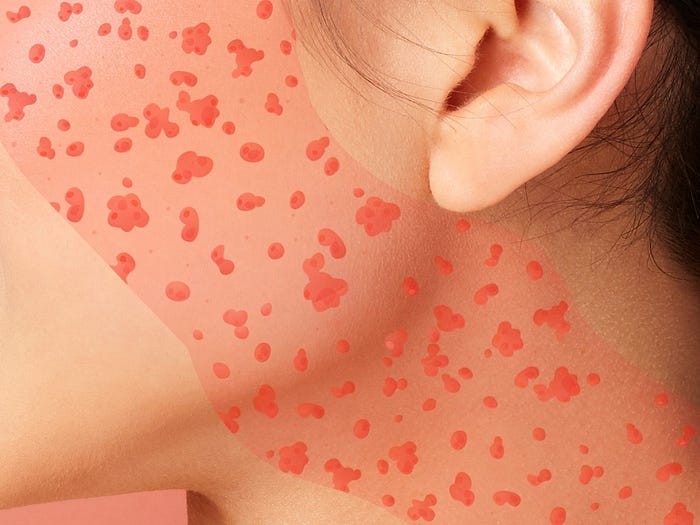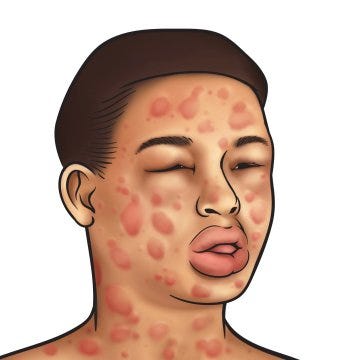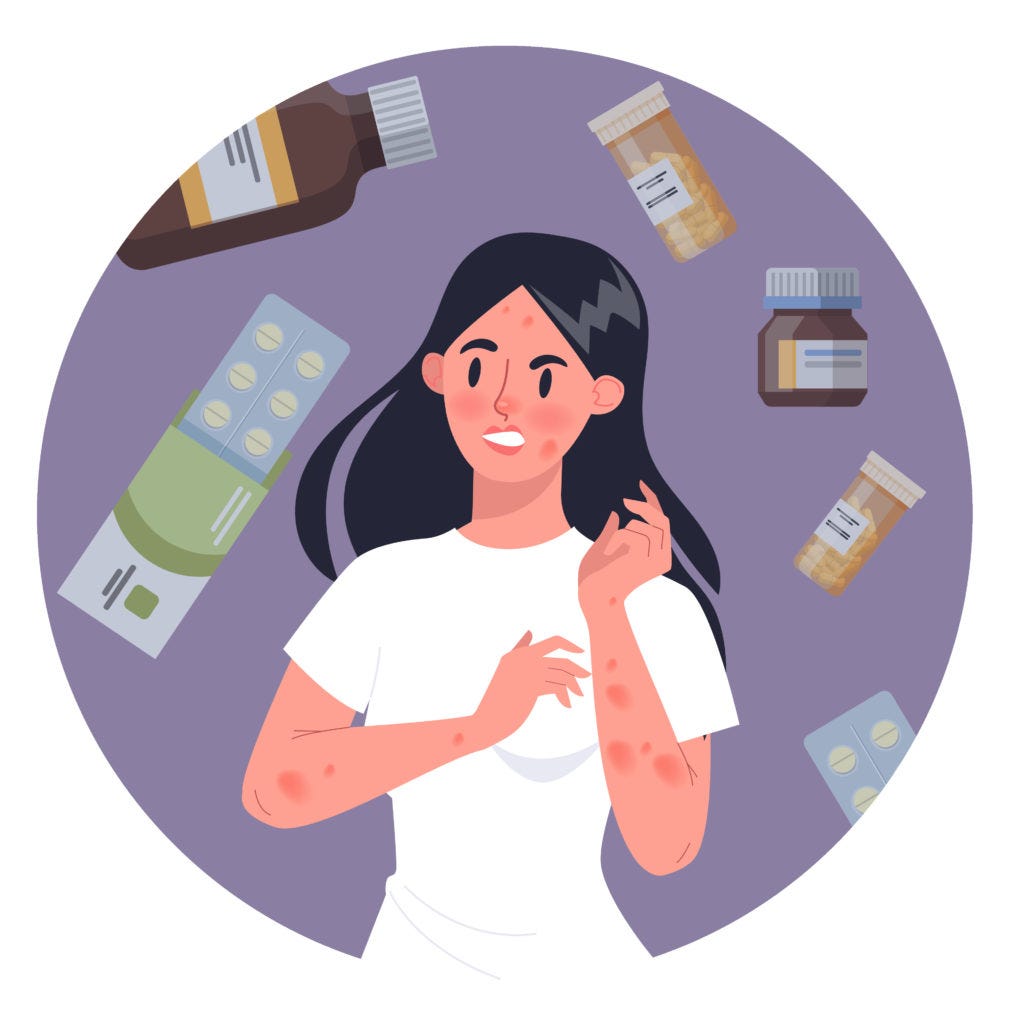- “Empowering Emergency Medicine Physicians”
- “Queue Management Software and Hospitalists in Modern Healthcare”
- “Enhancing-Pediatric-Infectious-Disease-Care”
- “Revolutionizing-Geriatric-Care”
- “Optimizing-Patient-Care-in-Pediatric-Rheumatology”
- “Pediatric-Pulmonology-Care”
- “Revolutionizing-Pediatric-Gastroenterology”
- “Enhancing-Pediatric-Neurology-Care”
- “Optimizing-Pediatric-Cardiology”
- “Enhancing-Pediatric-Endocrinology-Care”
- “Empowering-Neonatologists-with-EMR-Software”
- “Pediatrics-in-Focus”
- “Empowering-Neurologists-with-Electronic-Prescriptions”
- “Streamlining-Dermatology-Practice”
- “Streamlining-Psychiatry-Practice”
- “A-Game-Changer-for-Infectious-Disease-Specialists”
- “Allergist/Immunologist-Practices-with-QME-EMR-and-Hospital-Management-Systems”
- “Empowering-Hematologists-and-Revolutionizing-Healthcare-Management”
- “Optimizing-Healthcare-with-HMIS”
- “Transforming-Healthcare-with-Endocrinologist”
- “Healthcare-Management-with-QMe-EMR-for-Nephrologists”
- “Revolutionizing-Healthcare-Management-with-Cardiologist”
- “Streamlining-Operations-with-Queue-Management-Software”
- “Optimizing-Healthcare-Delivery”
- “Transforming-Healthcare-Management”
- HMIS And Decision Support Systems
- Dengue Unveiled: An Overview of Causes, Symptoms, and Prevention.
- Dengue Fever: Unraveling the Mosquito-Borne Menace.
- HMIS-and-Continuity-of-Care
- Project-Management-for-Successful-HMIS
- Catalysts of Wellness: The Transformative Power of Diagnosis and Screening in Healthcare
- Patient-Data-Management
- Guardians of Healthcare: The Vital Role of Fraud Detection in Ensuring Ethical Care
- Unlocking Insights
- Healthcare in the Digital Age: The History Of Development Of HMIS
- Transforming Healthcare
- Safeguarding-HMIS-Data
- HMIS-Integration-Challenges
- ANXIETY UNVEILED: CONQUERING FEARS AND CULTIVATING CALM.
- BEYOND THE BLUE: EMBRACING LIGHT ON THE PATH OF DEPRESSION.
- BEYOND THE BLUE: EMBRACING LIGHT ON THE PATH OF DEPRESSION.
- HMIS and Resource Allocation
- HMIS Data Accuracy and Integrity
- SOOTHING THE SILENT PAIN: UNDERSTANDING VULVODYNIA.
- Impact of HMIS on OPD Operations
- In Patient Management Through Health Management
- WITHIN THE SHADOWS: UNDERSTANDING BRAIN TUMOURS FROM WITHIN
- HMIS-and-Health-Insurance-Integration
- HMIS-Data-Analytics-for-Preventive-Care
- SILENT INTRUDERS: UNRAVELLING THE MYSTERIES OF PELVIC INFLAMMATORY DISEASE
- BREAKING FREE: OVERCOMING THE HURDLE OF URINARY INCONTINENCE
- “HMIS and Doctor-Patient Communication”
- HEALING INSIGHTS: THE POWER OF THE HOSPITAL MANAGEMENT INFORMATION SYSTEM.
- SOLVING THE OVARIAN PUZZLE:UNDERSTANDING OVARIAN CYST INSIDE OUT
- Usability And User Experience In HMIS
- WARRIOR’S BATTLE: TRIUMPHING OVER UTERINE CANCER
- POLYCYSTIC OVARY PUZZLE: UNRAVELLING THE ENIGMA OF PCOS
- Unlocking-the-Potential-of-HMIS-Data-for Medical-Research-and-Healthcare-Policy-Enhancement
- Feminine Health Unplugged: Empowering Women in Vaginal Infection Awareness
- Revitalizing Feminine Comfort: A Journey Through Vaginal Wellness.
- HMIS Vendor Selection Guide
- UNDERSTANDING FIBROIDS: NAVIGATING THE INTRICACIES OF UTERINE HEALTH.
- Best Practices for Data Migration in Healthcare Management Information Systems (HMIS)
- CONCEIVING HOPE: NAVIGATING THE JOURNEY OF INFERTILITY
- MENSTRUAL IRREGULARITIES: CAUSES AND TREATMENT
- RISING ABOVE: EMPOWERING WOMEN WITH PELVIC ORGAN PROLAPSE
- Leveraging HMIS for Enhanced Public Health Management and Disease Surveillance
- Challenges and Benefits of Implementing HMIS in Rural and Remote Healthcare Settings
- Securing Healthcare Continuity
- Pancreatic Cancer
- Lymphoma
- Leukemia
- Bladder Cancer
- Skin Cancer (Melanoma)
- COLORECTAL CANCER
- All about Prostate Cancer
- Fighting out the Disease of Lung Cancer
- Advances in Breast Cancer Treatment: A Comprehensive Guide
- Autism Spectrum Disorder (ASD)
- EHR SYMPHONY: HARMONIZING HEALTHCARE THROUGH ELECTRONIC RECORDS .
- Understanding Testicular Cancer: Detection, Treatment And Awareness.
- Childhood Obesity
- Kawasaki Disease
- Eczema (Atopic Dermatitis)
- Understanding Bone Cancer: A Brief Overview.
- Virtual Healing: Navigating Healthcare Through Telemedicine and Telehealth.
- Attention-Deficit/Hyperactivity Disorder (ADHD)
- PELVIC PAIN:CAUSES SYMPTOMS AND PREVENTIONS
- Type 1 Diabetes: Causes, Symptoms, and Treatment
- Gastroesophageal Reflux Disease (GERD)
- Battling Pneumonia: Unveiling the Stealthy Invader of the Lungs
- Rashes (Eczema, Dermatitis)
- UNDERSTANDING CERVICAL DYSPLASIA: CAUSES, SYMPTOMS AND MANAGEMENT
- Chicken Pox
- Endometriosis Unmasked: A Closer Look at the Silent Struggle
- Croup
- Hand, Foot and Mouth Disease (HFMD)
- THE DAWNING OF A NEW ERA: EMBRACING THE JOURNEY OF MENOPAUSE
- Urinary Tract Infections (UTIs)
- Strep Throat (Streptococcal Pharyngitis)
- Understanding Otitis Media(Ear Infection)
- 28th July In medical history!!
- Influenza (Flu) - Symptoms, Prevention and Management
- 27th July In medical history!!
- Respiratory Syncytial Virus (RSV) Infection
- SIGNIFICANCE AND ADVANTAGES OF HMIS: A DETAILED ANALYSIS
- Beyond Boundaries: Transforming Healthcare with Virtual Reality
- TRACK YOUR LIFE : A DETAILED UNDERSTANDING ON HEALTH MONITORING SYSTEM
- EXPLORING BENEATH THE SURFACE: UNDERSTANDING BARTHOLIN CYSTS AND ABSCESSES
- GUARDING GUT HEALTH: YOUR GUIDE TO POTENTIAL CROHN’S DISEASE PREVENTION.
- PATHWAYS OF HOPE: NAVIGATING THE CHALLENGES OF ESOPHAGEAL CANCER
- Gastric Battles: Confronting Stomach Cancer Head-On.
- HMIS IN SMALL CLINICS: A STEP TO A BETTER FUTURE
- Harmonizing Your Cycle: A Journey to Menstrual Health and Balance.
- Respiratory Syncytial Virus (RSV) Infection
- GUARDING OUR INTIMATE WORLD: A CLOSER LOOK AT STI
- Real-World HMIS Implementation Case Studies: Using Data to Transform Healthcare
- Gastroenteritis (Stomach Flu)
- Asthama - The Anatomy Of Breathing
- Influenza - A Silent Intruder
- Breast Cancer
Unravelling the Complexity of Allergic Reactions: Understanding, Managing, and Thriving
Unravelling the Complexity of Allergic Reactions: Understanding, Managing, and Thriving

The complex immune system’s reactions can cause otherwise harmless things to act as discomfort and danger triggers in the complex world of allergies. Millions of people worldwide are affected by allergic responses, which can range from simple sneezes to life-threatening anaphylaxis. Investigating the causes, manifestations, and treatment of allergies reveals the solution to improving our healthcare and building a resilient way of life. With the knowledge gained through this investigation, people are better equipped to navigate their surroundings with awareness and preparedness. Come along with us as we explore the mystery of allergic reactions and embrace a more healthy, allergy-aware lifestyle.
Types of Allergic Reactions
Immediate hypersensitivity reactions
- Anaphylaxis: A severe allergic reaction with a rapid onset known as anaphylaxis can cause life-threatening symptoms such trouble breathing, a sharp drop in blood pressure, and loss of consciousness. Triggered by allergens like foods, insect stings, or medications, anaphylaxis requires immediate medical attention. To counteract its effects and promote a speedy recovery, epinephrine injection and emergency care are essential.
2. Allergic rhinitis: Hay fever, also known as allergic rhinitis, is an inflamed nasal illness brought on by allergens like pollen, dust mites, or pet dander. Sneezing, a runny or stuffy nose, and itchy or watery eyes are symptoms. Allergy rhinitis is rarely life-threatening, but it can drastically reduce quality of life. Antihistamines, nasal corticosteroids, allergy injections, and avoidance of allergens are all used as treatment options. Acknowledging and treating allergic rhinitis can reduce suffering and enhance general health.
3. Food allergies: Food allergies are unfavorable immunological responses to specific foods, and they can cause symptoms like moderate hives or severe anaphylaxis. Peanuts, tree nuts, eggs, milk, wheat, soy, fish, and shellfish are examples of common allergies. Strict avoidance of trigger foods is crucial, as even a tiny amount can trigger a reaction. For people with food allergies and those who care for them, accurate diagnosis, education, and emergency readiness are crucial for managing the condition and avoiding potentially fatal reactions.
Delayed hypersensitivity reactions
-
Contact dermatitis: Inflammation of the skin brought on by contact with allergens or irritants such as metals, chemicals, or plants is known as contact dermatitis. Redness, itching, and a rash are symptoms. Topical therapies and trigger identification and avoidance can help relieve discomfort. Medical intervention can be necessary in extreme circumstances.
-
Drug allergies: Drug allergies are a result of the immune system’s unfavorable reaction to drugs, and they can cause symptoms ranging from minor skin rashes to life-threatening anaphylaxis. Antibiotics, non-steroidal anti-inflammatory medications (NSAIDs), and anticonvulsants are frequently used as triggers. It is essential to make a precise diagnosis using allergy testing. In order to manage an allergy, it is necessary to avoid the offending substance, consider alternate treatments, and inform healthcare professionals about the allergy.
3. Insect sting allergies: Insect allergies result from hypersensitivity to venom injected during stings or bites from insects like bees, wasps, hornets, and ants. Reactions can range from localized swelling to systemic anaphylaxis. Immediate medical attention is necessary for severe cases. Allergen immunotherapy (venom shots) can help reduce sensitivity. For those who are prone to insect allergies, it’s crucial to be aware of the hazards, to carry an epinephrine auto-injector, and to stay away from regions where there are a lot of insects.
Mechanisms of Allergic Reactions
Complex immune responses known as allergic reactions take place when the body’s immune system overreacts to allergens, which are typically harmless chemicals. These reactions are the result of complex mechanisms, principally two immunological pathways.: IgE-mediated responses and T-cell mediated responses.
When the immune system overproduces immunoglobulin E (IgE) antibodies after being initially exposed to an allergen, IgE-mediated reactions take place. These IgE antibodies link to mast cells and basophils after a subsequent encounter, causing the production of inflammatory mediators including histamine. Sneezing, hives, and other allergy-related symptoms are brought on by this discharge.
T-cell mediated responses involve a delayed hypersensitivity reaction, with T-cells recognizing allergens as foreign and initiating an immune response. This kind of reaction is frequently linked to specific medication sensitivities and allergic contact dermatitis.
Both mechanisms lead to an inflammatory cascade that results in the activation of immune cells, cytokine production, and enlistment of additional immune cells. For the development of efficient allergy management techniques, such as immunotherapy and targeted medicines, understanding these pathways is essential.
Common Allergens

Pollens and airborne allergies
Pollens and airborne allergens, often originating from trees, grasses, and weeds, can trigger allergic reactions in susceptible individuals. Sneezing, nasal congestion, and watery, itchy eyes are just a few of the symptoms that might result from inhaling these particles. Seasonal and geographic variations in pollen counts have an impact on the severity of allergy symptoms. Air filters, remaining indoors during high pollen seasons, and keeping an eye on pollen forecasts can all help reduce exposure and control allergy reactions.
Food allergens
Food allergies such as shellfish, dairy, eggs, wheat, soy, fish, and tree nuts can all cause immunological reactions when consumed. Allergic responses range from mild gastrointestinal discomfort to severe anaphylaxis. For anyone with food allergies, accurate ingredient labeling and careful dining are vital. The best defense against potentially fatal reactions is strict avoidance of trigger foods, carrying an epinephrine auto-injector, and teaching others about the allergy.
Medication allergens
Medication allergens trigger adverse immune reactions in some individuals when taking certain drugs. Penicillin-class antibiotics, non-steroidal anti-inflammatory medications, and anticonvulsants are frequently to blame. Rashes on the skin to severe anaphylaxis are among the symptoms. It is essential to identify specific drug allergies through allergy testing. Patients with known allergies must inform healthcare providers to avoid triggering reactions. Medication allergies can be properly managed with the help of alternative drugs and adequate labeling.
Insect venom allergens
Insect venom allergens, found in stings from bees, wasps, hornets, and ants, can induce allergic reactions. For sensitive individuals, a single sting may lead to severe systemic symptoms like swelling, hives, and even anaphylaxis. Venom immunotherapy, a series of injections to build tolerance, can be effective. Awareness of potential insect habitats, wearing protective clothing, and carrying an epinephrine auto-injector are essential precautions for those prone to insect venom allergies.
Risk Factors for Allergic Reactions

Allergic reactions result from a interplay between genetic predisposition, environmental factors, and personal history. Individuals who have a family history of allergies may be more prone to acquiring allergies. Pollen, pet dander, and other environmental contaminants are major contributors. Future allergy reactions are more likely to occur if there have been previous episodes. Understanding these risk factors enables people to take proactive measures to reduce the effects of allergies, such as avoiding triggers and taking the appropriate medicine. People can better regulate and control their allergic reactions and lessen their frequency and severity by being aware of and responding to these effects.
Clinical Presentation and Diagnosis
Identifying specific symptoms and using diagnostic techniques are necessary for the clinical presentation and diagnosis of allergies. Depending on the type of allergic reaction, symptoms might range from mild itching and sneezing to severe anaphylaxis. Accurate diagnosis entails a combination of medical history assessment, physical examination, and allergy testing such as skin prick tests, blood tests (RAST), and patch tests. These exams reveal the allergens that are causing the symptoms. In order to adopt successful techniques like allergy avoidance, medication, and immunotherapy for optimal control and enhanced quality of life, people need prompt and precise diagnosis. This aids in personalized care.
Management and Treatment
Numerous strategies that are adapted to the particular allergic reaction are used in the healthcare management and treatment of allergies. Strategies include allergen avoidance through environmental modifications and dietary adjustments. Antihistamines, decongestants, and topical therapies can all help with symptoms. Use of epinephrine auto-injectors is required right away for severe allergic reactions, followed by seeking medical attention. Allergen immunotherapy, delivered through injections or sublingual tablets, can modify the immune response over time Follow-up visits with medical professionals frequently guarantee successful treatment strategies. Individuals can effectively manage allergies, reduce symptoms, and improve their general well-being by combining these strategies.
Emergency Preparedness and Anaphylaxis

Anaphylaxis emergency planning is essential for people who are susceptible to severe allergic responses. Anaphylaxis is a sudden, life-threatening reaction that demands prompt treatment. The importance of carrying an epinephrine auto-injector and training loved ones and caregivers in its use cannot be overstated. Recognizing early signs such as difficulty breathing, swelling, and low blood pressure is vital. If anaphylaxis occurs, administering epinephrine promptly and seeking medical assistance are essential. Individuals should undergo follow-up care after initial therapy to stop recurrences. Anaphylaxis can be properly managed and lives could be saved by being alert, knowledgeable, and ready.
Living with Allergies
Adopting a diverse strategy is necessary for allergy management in order to reduce triggers and improve wellbeing. This entails using allergen avoidance techniques, taking prescribed medications as directed, and keeping lines of communication open with medical professionals. Emotional support and education from support groups can alleviate the psychological impact of allergies. The [Qme Healthcare System Software] provides individualized allergy management tools and keeps track of symptoms, prescriptions, and appointments to support this journey further. It enables continuous communication between patients and medical practitioners for enhanced allergy management and a higher quality of life, empowering people to take control of their health.
Recent Advances and Research

Innovative strategies have resulted from recent research and advancements in allergy management. Allergen-specific therapies like oral immunotherapy show promise in desensitizing individuals to triggers. The study of the microbiome’s role in the emergence of allergies is expanding. Gene therapies also offers the possibility of individualized therapies. Software from Qme Healthcare System Software, which combines cutting-edge research with useful applications, is crucial in this situation. It gives patients access to clinical trials, keeps patients up to date on new treatments, and helps medical professionals to adjust their plans in light of the most recent research, ultimately transforming allergy care and improving patient results.
Conclusion
In conclusion, it is crucial for people’s wellbeing to comprehend and successfully manage allergic reactions. From immediate hypersensitivity to delayed responses, allergies impact millions worldwide. Hope for a better future is provided by developments in research and medicine, such as allergen-specific medicines and gene manipulations. The Qme Healthcare System Software stands out as a game-changer in this environment. It enables people to actively manage their allergies by smoothly incorporating the most recent research. Personalized treatment plans, symptom tracking, and access to cutting-edge medicines and clinical studies are just a few of the elements that QMe offers to help the community of people who suffer with allergies become more aware, involved, and healthier.
- “Empowering Emergency Medicine Physicians”
- “Queue Management Software and Hospitalists in Modern Healthcare”
- “Enhancing-Pediatric-Infectious-Disease-Care”
- “Revolutionizing-Geriatric-Care”
- “Optimizing-Patient-Care-in-Pediatric-Rheumatology”
- “Pediatric-Pulmonology-Care”
- “Revolutionizing-Pediatric-Gastroenterology”
- “Enhancing-Pediatric-Neurology-Care”
- “Optimizing-Pediatric-Cardiology”
- “Enhancing-Pediatric-Endocrinology-Care”
- “Empowering-Neonatologists-with-EMR-Software”
- “Pediatrics-in-Focus”
- “Empowering-Neurologists-with-Electronic-Prescriptions”
- “Streamlining-Dermatology-Practice”
- “Streamlining-Psychiatry-Practice”
- “A-Game-Changer-for-Infectious-Disease-Specialists”
- “Allergist/Immunologist-Practices-with-QME-EMR-and-Hospital-Management-Systems”
- “Empowering-Hematologists-and-Revolutionizing-Healthcare-Management”
- “Optimizing-Healthcare-with-HMIS”
- “Transforming-Healthcare-with-Endocrinologist”
- “Healthcare-Management-with-QMe-EMR-for-Nephrologists”
- “Revolutionizing-Healthcare-Management-with-Cardiologist”
- “Streamlining-Operations-with-Queue-Management-Software”
- “Optimizing-Healthcare-Delivery”
- “Transforming-Healthcare-Management”
- HMIS And Decision Support Systems
- Dengue Unveiled: An Overview of Causes, Symptoms, and Prevention.
- Dengue Fever: Unraveling the Mosquito-Borne Menace.
- HMIS-and-Continuity-of-Care
- Project-Management-for-Successful-HMIS
- Catalysts of Wellness: The Transformative Power of Diagnosis and Screening in Healthcare
- Patient-Data-Management
- Guardians of Healthcare: The Vital Role of Fraud Detection in Ensuring Ethical Care
- Unlocking Insights
- Healthcare in the Digital Age: The History Of Development Of HMIS
- Transforming Healthcare
- Safeguarding-HMIS-Data
- HMIS-Integration-Challenges
- ANXIETY UNVEILED: CONQUERING FEARS AND CULTIVATING CALM.
- BEYOND THE BLUE: EMBRACING LIGHT ON THE PATH OF DEPRESSION.
- BEYOND THE BLUE: EMBRACING LIGHT ON THE PATH OF DEPRESSION.
- HMIS and Resource Allocation
- HMIS Data Accuracy and Integrity
- SOOTHING THE SILENT PAIN: UNDERSTANDING VULVODYNIA.
- Impact of HMIS on OPD Operations
- In Patient Management Through Health Management
- WITHIN THE SHADOWS: UNDERSTANDING BRAIN TUMOURS FROM WITHIN
- HMIS-and-Health-Insurance-Integration
- HMIS-Data-Analytics-for-Preventive-Care
- SILENT INTRUDERS: UNRAVELLING THE MYSTERIES OF PELVIC INFLAMMATORY DISEASE
- BREAKING FREE: OVERCOMING THE HURDLE OF URINARY INCONTINENCE
- “HMIS and Doctor-Patient Communication”
- HEALING INSIGHTS: THE POWER OF THE HOSPITAL MANAGEMENT INFORMATION SYSTEM.
- SOLVING THE OVARIAN PUZZLE:UNDERSTANDING OVARIAN CYST INSIDE OUT
- Usability And User Experience In HMIS
- WARRIOR’S BATTLE: TRIUMPHING OVER UTERINE CANCER
- POLYCYSTIC OVARY PUZZLE: UNRAVELLING THE ENIGMA OF PCOS
- Unlocking-the-Potential-of-HMIS-Data-for Medical-Research-and-Healthcare-Policy-Enhancement
- Feminine Health Unplugged: Empowering Women in Vaginal Infection Awareness
- Revitalizing Feminine Comfort: A Journey Through Vaginal Wellness.
- HMIS Vendor Selection Guide
- UNDERSTANDING FIBROIDS: NAVIGATING THE INTRICACIES OF UTERINE HEALTH.
- Best Practices for Data Migration in Healthcare Management Information Systems (HMIS)
- CONCEIVING HOPE: NAVIGATING THE JOURNEY OF INFERTILITY
- MENSTRUAL IRREGULARITIES: CAUSES AND TREATMENT
- RISING ABOVE: EMPOWERING WOMEN WITH PELVIC ORGAN PROLAPSE
- Leveraging HMIS for Enhanced Public Health Management and Disease Surveillance
- Challenges and Benefits of Implementing HMIS in Rural and Remote Healthcare Settings
- Securing Healthcare Continuity
- Pancreatic Cancer
- Lymphoma
- Leukemia
- Bladder Cancer
- Skin Cancer (Melanoma)
- COLORECTAL CANCER
- All about Prostate Cancer
- Fighting out the Disease of Lung Cancer
- Advances in Breast Cancer Treatment: A Comprehensive Guide
- Autism Spectrum Disorder (ASD)
- EHR SYMPHONY: HARMONIZING HEALTHCARE THROUGH ELECTRONIC RECORDS .
- Understanding Testicular Cancer: Detection, Treatment And Awareness.
- Childhood Obesity
- Kawasaki Disease
- Eczema (Atopic Dermatitis)
- Understanding Bone Cancer: A Brief Overview.
- Virtual Healing: Navigating Healthcare Through Telemedicine and Telehealth.
- Attention-Deficit/Hyperactivity Disorder (ADHD)
- PELVIC PAIN:CAUSES SYMPTOMS AND PREVENTIONS
- Type 1 Diabetes: Causes, Symptoms, and Treatment
- Gastroesophageal Reflux Disease (GERD)
- Battling Pneumonia: Unveiling the Stealthy Invader of the Lungs
- Rashes (Eczema, Dermatitis)
- UNDERSTANDING CERVICAL DYSPLASIA: CAUSES, SYMPTOMS AND MANAGEMENT
- Chicken Pox
- Endometriosis Unmasked: A Closer Look at the Silent Struggle
- Croup
- Hand, Foot and Mouth Disease (HFMD)
- THE DAWNING OF A NEW ERA: EMBRACING THE JOURNEY OF MENOPAUSE
- Urinary Tract Infections (UTIs)
- Strep Throat (Streptococcal Pharyngitis)
- Understanding Otitis Media(Ear Infection)
- 28th July In medical history!!
- Influenza (Flu) - Symptoms, Prevention and Management
- 27th July In medical history!!
- Respiratory Syncytial Virus (RSV) Infection
- SIGNIFICANCE AND ADVANTAGES OF HMIS: A DETAILED ANALYSIS
- Beyond Boundaries: Transforming Healthcare with Virtual Reality
- TRACK YOUR LIFE : A DETAILED UNDERSTANDING ON HEALTH MONITORING SYSTEM
- EXPLORING BENEATH THE SURFACE: UNDERSTANDING BARTHOLIN CYSTS AND ABSCESSES
- GUARDING GUT HEALTH: YOUR GUIDE TO POTENTIAL CROHN’S DISEASE PREVENTION.
- PATHWAYS OF HOPE: NAVIGATING THE CHALLENGES OF ESOPHAGEAL CANCER
- Gastric Battles: Confronting Stomach Cancer Head-On.
- HMIS IN SMALL CLINICS: A STEP TO A BETTER FUTURE
- Harmonizing Your Cycle: A Journey to Menstrual Health and Balance.
- Respiratory Syncytial Virus (RSV) Infection
- GUARDING OUR INTIMATE WORLD: A CLOSER LOOK AT STI
- Real-World HMIS Implementation Case Studies: Using Data to Transform Healthcare
- Gastroenteritis (Stomach Flu)
- Asthama - The Anatomy Of Breathing
- Influenza - A Silent Intruder
- Breast Cancer